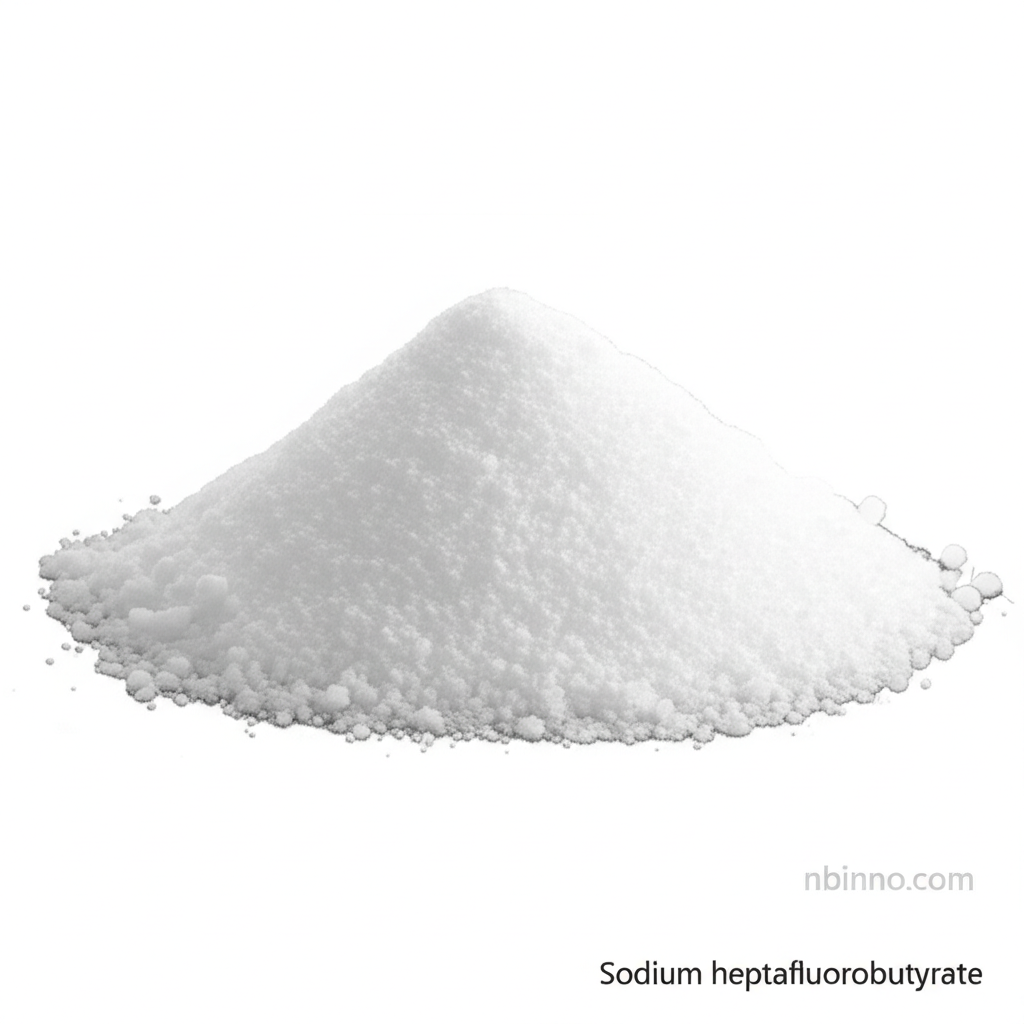Heptafluorobutyric Acid Sodium Salt: Enhancing Lithium Metal Anode Stability for Advanced Batteries
Discover how sodium heptafluorobutyrate and heptafluorobutyric acid revolutionize lithium metal anodes for superior battery performance.
Get a Quote & SampleProduct Core Value

Sodium heptafluorobutyrate
Sodium heptafluorobutyrate, derived from heptafluorobutyric acid, is a critical component for advanced battery technologies. Its unique chemical properties enable significant improvements in the stability and performance of lithium metal anodes, a key challenge in the development of high-energy-density batteries.
- Enhance lithium metal anode stability through effective surface modification using heptafluorobutyric acid treatment.
- Achieve uniform lithium deposition and significantly suppress the formation of lithium dendrites, a major cause of battery failure.
- Benefit from improved electrochemical performance, including higher Coulombic efficiency and extended cycle life, crucial for practical battery applications.
- Utilize a chemical that removes the native passivation layer on lithium surfaces, promoting better Li-ion flux and lower interface impedance.
Key Advantages
Improved Anode Stability
The application of sodium heptafluorobutyrate leads to a robust and stable lithium metal anode interface, critical for long-term battery operation.
Dendrite-Free Deposition
Leveraging heptafluorobutyric acid treatment ensures a more uniform lithium deposition, thereby preventing the dangerous growth of dendrites and enhancing safety.
High Coulombic Efficiency
Experience significantly higher Coulombic efficiency, indicating reduced irreversible capacity loss and more efficient energy utilization in lithium-ion batteries.
Key Applications
Battery Materials
As a key component in advanced battery electrolytes and surface treatments, it is vital for improving the performance and lifespan of lithium-ion batteries.
Electrolyte Additives
Used as an additive to enhance electrolyte properties, facilitating smoother ion transport and stabilizing the anode-electrolyte interface.
Chemical Synthesis
Serves as a crucial intermediate or reagent in the synthesis of complex organic compounds, contributing to the development of new materials.
Surface Modification
Essential for surface modification techniques that aim to create lithiophilic interfaces, thereby improving electrode stability and conductivity.
